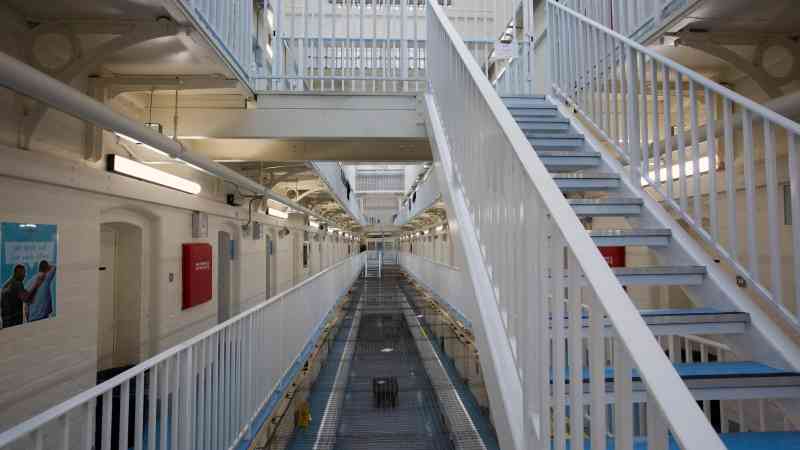The prisons builder ISG has fallen into administration in the largest construction company collapse in Britain since Carillion failed in 2018, with the loss of more than 2,000 jobs.
The failure of ISG, the UK’s fifth largest construction company, could have reverberations across government, where it is a main contractor for the Ministry of Justice, building and upgrading prisons; the Department for Education, for which it builds and fits out schools and colleges; and Network Rail.
In total ISG is involved in 69 central government projects worth more than £1 billion.
The company, formally known as Interior Services Group, was put into administration on Friday after months of speculation amid a string of high-profile project failures. The construction services company had been trying to find a buyer but failed to secure a suitable rescue deal, administrator EY said.
The London-based business employs about 2,400 people across its UK business, the majority of whom will be made redundant with immediate effect. Around 200 employees will initially be kept on to assist the administrators in winding down the business.
It is understood that its US owner, Cathexis, a family fund of the Texan oil billionaire heir William Harrison, declined to put any further funding into the business. Harrison had been a major backer of the Britishvolt fiasco and ISG had been a main contractor on the abortive bid to build a gigafactory in the northeast.
ISG had also been a contractor on other recently cancelled projects, including a new Center Parcs in West Sussex and proposals for a new television and film studios in Hertfordshire.
It is reckoned to have more than £1 billion in government contracts and was awarded three prison construction jobs this year even as speculation about the company’s future swirled: HMP Grendon in Buckinghamshire, HMP Guys Marsh in Dorset and HMP Liverpool.
Other current major work includes contracts for the Government Property Agency headquarters in Birmingham and the Cambridge Institute for Sustainability Leadership. Recent completed projects have included the Manchester Velodrome.
The Cabinet Office said it had implemented “detailed contingency plans” and that departments were working to ensure that sites were safe and secure.
The company has had annual revenues of £2 billion.
EY said: “Despite significant efforts to secure a sale of the group over many months, a deal could not be completed. While there has been misleading speculation surrounding the potential sale in the last few days, we wish to be clear to employees, suppliers, and customers that it was not possible to conclude a sale as the potential purchaser could not, despite repeated requests of them to do so, adequately demonstrate that they had the funding needed to recapitalise the business and keep it solvent.
“Due to current market conditions, an alternative sale or additional funding could not be secured. As a result, the directors made an application to court to place certain UK trading entities of ISG in administration.”
In a late-night email on Thursday to employees, Zoe Price, who joined as chief executive earlier this year, apologised for keeping staff in the dark over an announcement that she had planned to make this coming Monday. “The group’s trading and cash performance has been impacted by legacy issues relating to the large loss-making contracts secured between 2018 and 2020, primarily in the residential, logistics and distribution, as well as some data centre projects,” she wrote.
“Trading out these projects has had a significant effect on our liquidity … to a point where we have been unable to continue trading.”
Stephen Rawlinson, an independent analyst, said ISG was Britain’s fifth largest construction contractor, adding: “Its demise is highly significant.”
ISG is the largest construction company to collapse in Britain since Carillion, a construction, project finance, and support services company, went into liquidation in January 2018 owing suppliers £7 billion.
